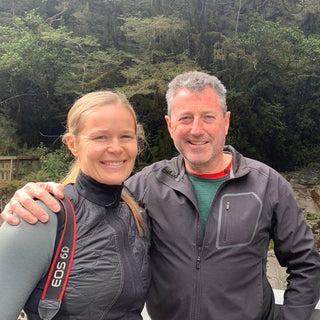Making the switch from a carbohydrate-fuelled diet to a fat- and ketone-powered lifestyle can be life-changing, but it’s not always an easy road. Many people struggle with the transition, often due to the same common mistakes. Understanding these pitfalls will help you push through short-term challenges and unlock the long-term health benefits of ketosis—better energy, balanced hormones, reduced inflammation, and improved metabolic function.
🔥 Mistake #1: Not Eating Enough Fat
For decades, we’ve been told that eating fat makes us fat. The food pyramid, dieticians, and mainstream media have conditioned us to avoid animal fats. Many people still feel guilty about eating the fat on their steak or cooking with butter. But here’s the truth: Fat isn’t the enemy—excess carbohydrates and insulin dysregulation are.
When you lower your carb intake, you also lower insulin, which is the body’s primary storage hormone. Insulin’s job is to store energy, and when it’s elevated, it blocks your ability to burn fat for fuel. If you’re not eating enough fat to compensate for the drop in carbs, you’ll feel sluggish, experience cravings, and may start breaking down muscle for energy.
To avoid this, prioritize quality dietary fats as your primary energy source:
✅ Grass-fed red meat (ribeye, lamb, fatty cuts)
✅ Wild-caught seafood (salmon, sardines, mackerel)
✅ Pasture-raised eggs & poultry
✅ High-quality dairy (if tolerated)
✅ Grass-fed butter, tallow, and lard
Instead of seeking out lean meats and trimming off the fat, embrace these nutrient-dense sources. Your body thrives on fat when insulin is low, allowing for sustained energy, better brain function, and long-term metabolic health.
🧂 Mistake #2: Not Getting Enough Salt
When you cut carbs, your body sheds a lot of stored water, which also flushes out vital electrolytes like sodium, magnesium, and potassium. Without replenishing these, you may experience:
⚡ Fatigue & dizziness
💀 Muscle cramps & headaches
🔥 The dreaded “keto flu”
The fix? More salt! But not just any salt—ditch the processed, iodized table salt and opt for:
✅ Unrefined sea salt
Your salt needs change over time, so listen to your body. In the beginning, you may need extra salt—even adding a pinch to your water can help. Over time, as your body adapts, you may find you need less. Some strict carnivores report no need for added salt at all after years of eating this way.
💧 Mistake #3: Not Drinking Enough Water
Hydration is critical—especially in the early days of keto when your body is detoxing from excess sugar and processed foods. Many mistake tea, coffee, or soft drinks for proper hydration, but nothing replaces pure water.
Since switching to a ketogenic diet can trigger detox symptoms like acne, bad breath, digestive upset, or gout, drinking clean, preferably distilled water can help flush out toxins. Aim for a few liters of pure, ultra-filtered, or distilled water daily to support your body’s transition.
⏳ Mistake #4: Not Giving It Enough Time
Most people have spent decades running on carbohydrates and glucose for energy. That means their bodies are conditioned to rely on sugar rather than fat. This shift doesn’t happen overnight.
The process of switching from glucose metabolism to fat metabolism takes time, patience, and consistency. Here’s a rough timeline of what to expect:
- Days 1–7: Your body is still burning stored sugar (glycogen). You might feel tired or sluggish as insulin levels drop.
- Weeks 2–3: Your body starts shifting to fat-burning (ketosis), but may not be efficient yet. Cravings may linger.
-
Months 2–3+: Full fat adaptation kicks in. Your body now prefers fat for fuel, leading to:
✅ More stable energy
✅ Reduced inflammation
✅ Faster recovery & improved endurance
✅ Better metabolic flexibility
The key? Trust the process. Stay consistent, avoid giving up too soon, and let your body relearn how to burn its own fat stores for fuel.
💡 The Bottom Line
The transition to keto is not just about food choices—it’s about resetting your entire metabolic system. Lowering carbs (to the range of zero to 100grams per day) reduces insulin, which unlocks your fat-burning potential and restores hormonal balance. Eliminating ultra-processed foods, seed oils & sugar offer the most immediate benefit, for the investment or our effort. Yes, there’s an adjustment period, but the rewards—increased energy, better focus, reduced cravings, and long-term health improvements—are well worth it.
To make the transition smoother, Primal Kiwi Superfoods offer high-quality, organic form, whole food products designed to complement a ketogenic lifestyle and provide the best bioavailable nutrients, in their perfect ratios, to fuel your journey.
🚀 Stay consistent, fuel your body the right way, and experience the incredible benefits of a truly ancestral way of eating!


